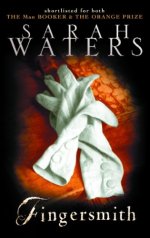
Moderator: Aaron
Attendees: Alexius, Dominic, Javin, Jiaqi, Raj, Timmy
OPENING
Raj and Alexius thought that the book was repetitive; the latter further added that the plot twist was predictable and expected, which Dominic concurred. The story did not interest Jiaqi as well, who felt that it was contrived. Timmy, who went the “alternative route” and watched the miniseries, felt that it was draggy at some parts of the show. Aaron declared it “the lesbian version of Fifty Shades of Gray.”
THEMES
Everyone had differing opinions on who should be deemed as a/the villain. Dominic picked John Vroom, who “doesn’t owe Dainty yet beats her up to assert control.” Uncle Christopher Lilly was also brought up, because he mindfucked – mentally and sexually abused – Maud (Aaron) and was just a perverted, demented being (Raj). Alexius, however, found him interesting and wanted to “shiver together” with him.
Ultimately, the award for “Greatest Villain” was tied between Richard – Aaron viewed him as unscrupulous, though Jiaqi begged to differ – and Mrs Sucksby, who was willing to give Sue up to a madhouse, according to Jiaqi.
We discussed on death and noted how women’s deaths were painted as some form of redemption for their errors, while men’s deaths were treated as punishment for their sins.
…Which led us to the question – why so much man hating in this book? The men were either portrayed negatively (orderlies in the madhouse were described as “manly”) or just nothing, while the women experienced a plethora of emotions, in particular sadness. Aaron also highlighted the very (obvious?) maternal instincts evident throughout the book, in the form of Mrs Sucksby and Mrs Stiles. “At least there is no gay bashing,” Javin quipped.
Speaking of gay bashing, we questioned Gentleman/Richard Rivers’ sexuality – is he a homosexual? Asexual? He had sex with neither Maud nor Sue, and his only noted “sexually charged” moment was when he touched Charles’ cheek. Timmy brought up an interview with the actor who played the Gentleman, who shared similar observations as us.

Dominic noted the lack of proper family unit as a running theme throughout the book, deeming it unconventional. Aaron viewed it – Mrs Sucksby and the gang, in particular – as a “queer kind of family.” Alexius brought up the cold weather as the reason why they randomly convened together.
Maud and Sue were seen as the victims throughout the ordeal (Jiaqi), despite the fact that Maud has been in the know the entirety of the ruse while Sue was the more innocent one of the two. Alexius asked whether Maud really loved Sue, to which Raj replied that her love stemmed from sympathy.
The similarities as well as differences of Maud and Sue were discussed. Dominic brought up the rationality of switching the two at birth when Mrs Sucksby has other babies that could have taken Maud’s place. We also entertained the idea of the two being possibly related, which means whatever they have for each other bordered on incestuous.
 With such a title as Fingersmith, hands obviously featured prominently throughout the book, which disgusted Aaron. Dominic looked at it as a form of penis envy, with the finger(s) as a phallic symbol. Because of this, there was a lack of girl-on-girl sex, which bored Raj and Jiaqi.
With such a title as Fingersmith, hands obviously featured prominently throughout the book, which disgusted Aaron. Dominic looked at it as a form of penis envy, with the finger(s) as a phallic symbol. Because of this, there was a lack of girl-on-girl sex, which bored Raj and Jiaqi.
The ending drew the biggest ire from everyone. Dominic saw it as a being purposely written as a transaction point for the characters. For Timmy, however, it was all just one big fuckery.
FAVOURITES
Raj picked Dainty for the fact that she “has heart”, was portrayed as a strong character and ultimately redeemed herself.
Jiaqi also liked Dainty because she is kind; he also selected John because of his loyalty towards Mrs Sucksby.
Dominic admired Sue for her tenacity.
Alexius chose Christopher Lilly because of his vast collection of porn books, which are “more interesting than (Waters’) Fingersmith.”
Aaron didn’t have any favourite characters, though he cited the Rivers/Charles cheek scene as his favourite.
CONCLUSION
In capping the discussion, Raj thought the book was good and really liked the twist at the end of each act. Timmy appreciated the plot twist as well, which made the miniseries move at an exciting pace. Dominic enjoyed it because it was well written and researched. Alexius felt that reading the book allowed him to feel “cooler and refreshed”, thanks to its time period and weather setting. Jiaqi commented that the book was a good read as well as a page turner, comparing it to a magician performing his tricks. Aaron agreed with Jiaqi’s sentiments.


